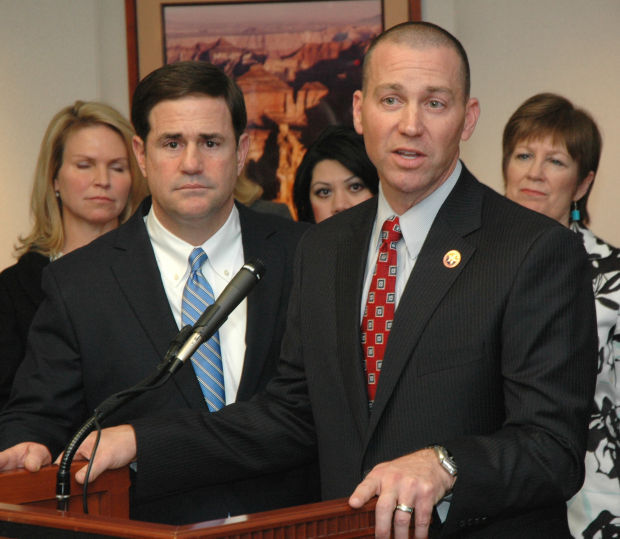The number of African-American children removed from their homes in Arizona has increased nearly 10 percent in the last two years, now accounting for nearly 30 out of every 1,000 children statewide.
“This is absolutely something that we’re concerned about,” said Katherine Guffey, the chief quality improvement officer for Arizona’s Department of Child Safety.
At the end of September 2015, there were 18,619 children in out-of-home care statewide, a Department of Child Safety Oversight Committee report shows, and 2,791, or 15 percent, were African-American children.
Many factors could be contributing to this trend, Guffey said. “It could be a combination of the effects of poverty and impoverished communities not having access to services,” she said.
About 62 percent of African-American children in Arizona were living in low-income households in 2013, data from Columbia University’s National Center for Children in Poverty shows. In comparison, 33 percent of Caucasian children were from low-income families.
Over-representation of African-American children in foster care is not limited to Arizona, but some states are making progress in addressing it, said Jerry Milner, vice president for child welfare practices with the Center for the Support of Families.
With the number of Arizona children in out-of-home care rising to 19,000, the increase in minority children in foster care is a likely outgrowth, he said.
“We know, of course, that African-American families and kids are also over-represented among families that live in poverty, and kids who are coming from very poor situations are probably going to be more likely to end up in the child welfare system,” he said.
Arizona’s population is about 6.7 million, U.S. Census Bureau data shows, and about 315,000 residents are African-Americans.
“It’s a major concern,” said Charles Fanniel, Arizona president for the NAACP.
“All kids, regardless of ethnicity, need stable, loving homes.”
Fanniel said much of the NAACP’s national focus recently has been on the excessive use of force against unarmed African-American men, but he said they need to look at this issue more now.
Single parent homes are one of the biggest challenges, said Donna Liggins, the longtime president of Tucson’s NAACP, who retired from that post in 2014.
In some cases, she said, African-American parents lack the resources needed to help them succeed and raise their children. In some cases, they need parenting classes or, more often, access to decent child care.
“If there’s really abuse, of course you need to stop that, but in many cases it’s simply that the mother has no resources,” she said.
States that have made improvements typically focus on identifying why a certain race is over-represented — such as lack of access to child care or unemployment.
Policies need to “focus on identifying what their needs are, what their supports are and then get them connected to the agencies that can help them,” Milner said.





